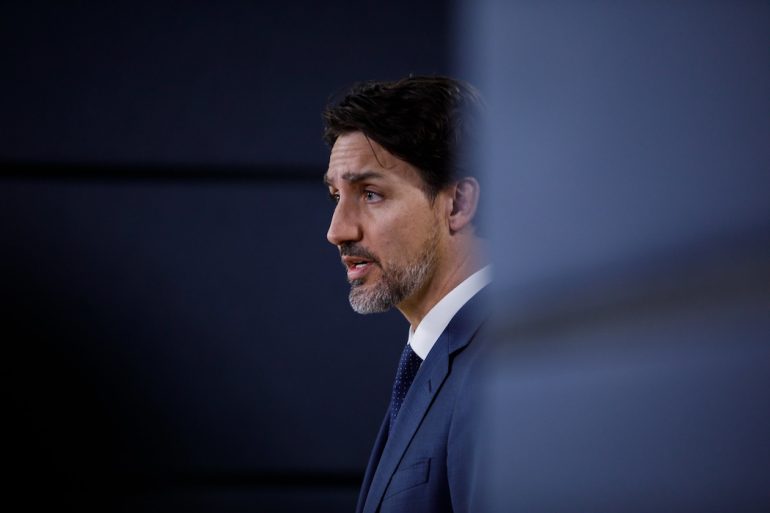When Kanchan Kumar was looking for a place to set up a global FinTech company in 2016, Canada was an obvious choice. If he were making the same decision today, however, he’s not so sure he would have come to the same conclusion.
The founder and CEO of Toronto-based Truly Financial said at the time Canada was an ideal alternative to America’s more complicated and costly immigration system. Kumar added that he was further enticed by the country’s strong reputation back home, its relatively low cost of living, and out of concern for the wave of xenophobia that accompanied the rise of Donald Trump’s presidential run that year.
And now?
“I would rethink it for sure, and there are people rethinking it,” he said. “Newer founders who are possibly undergoing the PR [permanent resident] application or the Startup Visa application, they certainly are rethinking it, because they reach out to people like us.”
Nearly half of the 32,000 tech workers who moved to Canada between April of 2022 and March of 2023—15,097 in total—originated from India.
Canada’s diplomatic relationship with India has been in sharp decline since September 18th, when Prime Minister Justin Trudeau revealed national security agencies were pursuing “credible allegations” of a link between India’s government and the June assassination of Sikh leader and Canadian citizen Hardeep Singh Nijjar in British Columbia. Days later, India responded by asking Canada to remove 41 of its 62 diplomats from the country, and later suspended visa services for Canadians.
Kumar says that while he and fellow Indian-born, Canadian-based founders reassure those back home that nothing has changed on the ground, the recent escalations—coupled with a rising cost of living and an improbably more stable political environment south of the border—have many rethinking a move to Canada, with potentially devastating consequences for the nation’s tech sector.
According to a recent report by the Technology Councils of North America, nearly half of the 32,000 tech workers who moved to Canada between April of 2022 and March of 2023—15,097 in total—originated from India. The second biggest source of foreign tech talent, according to the report, is Nigeria, with 1,808 newcomers.
“If we were to lose even a portion of that, [the impact] would be huge,” said Ilya Brotzky, the CEO and co-founder of VanHack, which helps Canadian tech companies recruit talent from abroad.
Brotzky added that he and his team have seen sentiments towards Canada change among Indian tech workers in recent years, particularly in the month since diplomatic tensions began rising. He explained that emails to highly skilled tech workers in India offering them job opportunities in Canada were previously met with enthusiasm and even disbelief, but not anymore.
“People are saying, ‘Why should I move to Canada? Canada-Indian relations aren’t so good right now,’ that kind of stuff, and we never got that before,” Brotzky told BetaKit. “It’s alarming to see, and really disappointing obviously, because there’s a lot of really smart people that would add to our economy.”
Not only has the geopolitical situation made it harder for Canadian employers to attract tech workers from India, but it’s also made life more difficult for those already here. The sudden suspension of visa services means Canadian citizens who don’t currently have a valid visa are unable to travel between the two countries.
Parag Goswami was fortunate enough to have previously secured a multiple entry visa that’s valid until March, but his wife wasn’t as lucky. Goswami, who is the co-founder and CEO of Toronto-based Clik.ai, regularly travels between the two countries to visit friends and family back home, and to manage his team of about 30 staff based on the south-Asian subcontinent.
“My wife is Canadian, and she only has a visa which was valid until October 10th, and it’s usually so easy to just apply for a visa online and get one in a couple of days; now she can’t travel,” said Goswami, adding that the timing is particularly unfortunate. “This is our first Diwali after getting married, so this is a big deal for us.”
Goswami says the sudden change in diplomatic rules right ahead of the biggest holiday in the Hindu calendar, which takes place on November 12, means many families won’t be able to celebrate together.

Even after the current conflict blows over, however, the prospect of another sudden change in diplomatic ties could change the calculus for Indian tech workers considering a move to Canada.
“Everyone does their cost-benefit analysis, and in 2016, 2017, 2018 it always made sense to go to Toronto; it’s a great city, good opportunities, things like that—now all of a sudden it has changed,” says Arunabh Dastidar, the co-founder and CEO of Toronto-based proptech company RealSage.
In 2016 Dastidar turned down offers to study at Berkley, NYU, and Columbia Law to attend the Schulich School of Business at York University. While he still says it was “one of the best decisions” he’s ever made he also fears that other Indian tech workers won’t be able to realize the same opportunities.
“My mom recently called and asked me about it, so it’s making news in India,” he said. “The geopolitical issues made our parents worried, and if your parents are scared, you’re not leaving.”
For Dastidar, however, the recent spat pales in comparison to the broader challenges he sees for Canadian newcomers, which began long before the murder accusation in September.
“Everyone else who has recently immigrated in my circle has not great things to say back to their cousins and their family or the people who are asking them about moving to Canada,” he said. “Almost all of them have struggled finding jobs, struggled finding accommodations, struggled to find basic affordable living, so it has changed significantly.”
Feature image courtesy Flickr.

